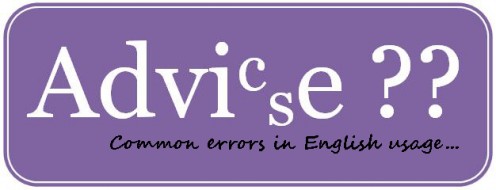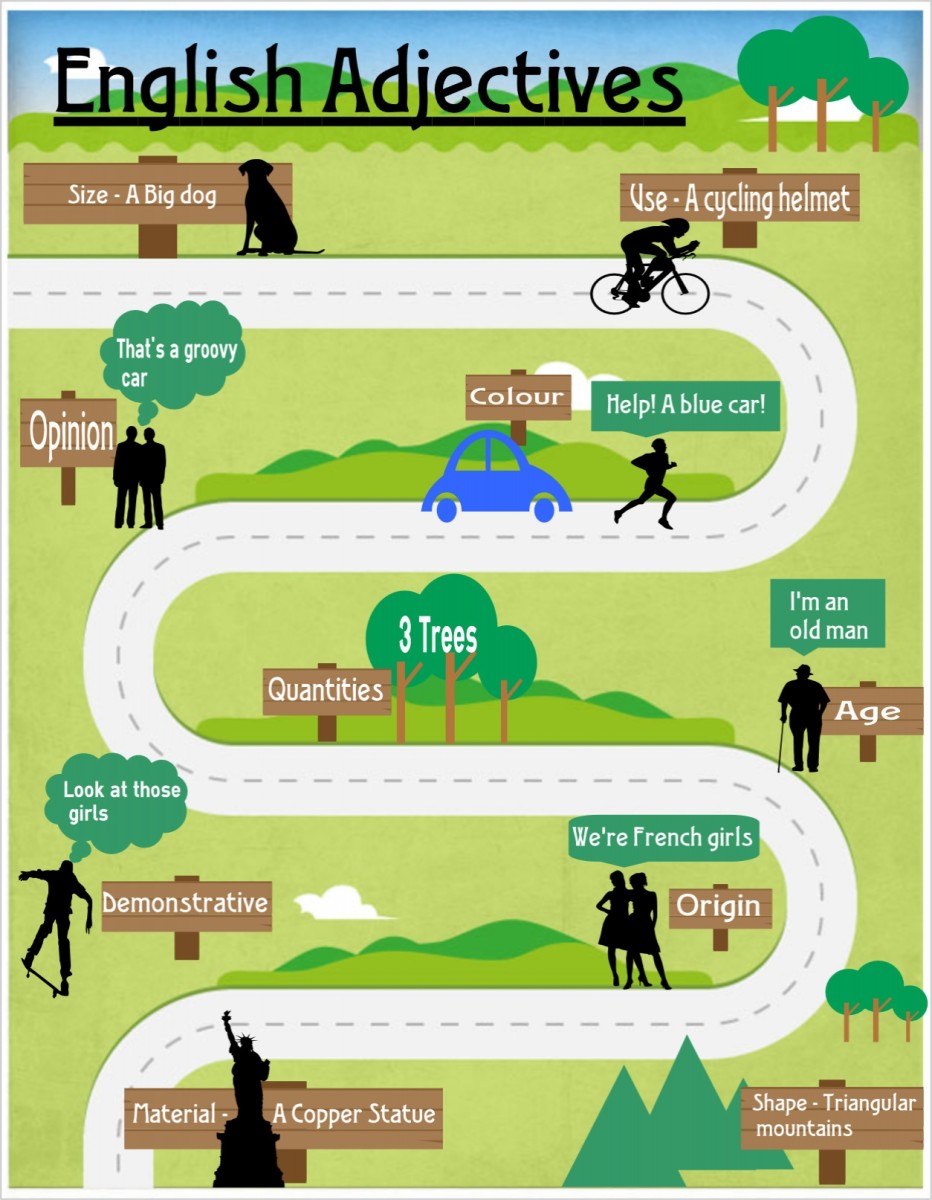Confusing Words in English - Chapter 1

Confusing Words - Chapter 2:
1. All right vs. Alright
2. All ready vs. Already
3. All together vs. Altogether
4. Although vs. Though vs. Even Though
5. Although vs. While
(To learn the differences, usages, and tips to remember and recognize which one is correct to use in a sentence, click the heading)
Confusing Words In English - Chapter 1:
There are many confusing words in English language which often further confuse some already confused people. And while they are confused, in their confusion, they often confuse other people with their confused confusions. So, to avoid these confusions, and further confusing you; I should cut the crap and present you what I made a 'list of confusing words in English'. This is chapter No.1 and in this chapter, we will discuss:
1. Advice vs. Advise
2. Affect vs. Effect
3. Between vs. Among
4. Loose vs. Lose
5. Principal vs. Principle
1. ADVICE vs. ADVISE:
One of the most queried confusing words is the difference between ‘advice’ vs. ‘advise’. In fact this one is rather really simple. The difference between ‘advice’ vs. ‘advise’ is:
‘advice’ is a noun, while ‘advise’ is a verb. You can clearly understand by the following example:
Example:
1. Advice: It is always good to take a piece of advice before you proceed on.
2. Advise: The doctor advised me to quit smoking.
In short, if a subject is performing the ‘advice’ (noun), you should use the word ‘advise’ (as a verb)
2. AFFECT vs. EFFECT:
Affect vs. Effect is another pair of confusing words in English language which often confuse readers and writers simultaneously. If you have cleared yourself with the concept of ‘Advice vs. Advise’, then this one is a piece of cake. Almost the same rule applies that ‘affect’ is a verb i.e. to affect something; to influence.
Here is a little change though. Here ‘effect’ is the consequence or result of that influence. It is usually used as a noun.
Example:
1. Affect: Drinking and smoking affects our health in a negative way.
2. Effect: Drinking and smoking have negative effects on our health.
Now that you have learned the difference, do not let this confusing pair of word affect your writing from now on :P
3. BETWEEN vs. AMONG:
Generally speaking, ‘between’ is used for two people and ‘among’ is used for more than two people.
Examples:
1. Between: Allie had to choose between Noah and Lon.
2. Among: There may be an enemy among our friends.
Clear enough? Though this one is a general rule, but technically even ‘between’ can be used for more than two things. The rule here is that there should be more than two distinctive things, then between will be used in there.
Example:
Between: The differences between French, Arabic, Chinese and Urdu are significant.
4. LOOSE vs. LOSE:
Loose vs. Lose is another pair of confusing word and homophone which troubles many people.Technically speaking, ‘loose’ is an adjective, and ‘lose’ is a verb.
For the sake of clarification and generally speaking about this pair of confusing words, you can easily perceive the concept by understanding that ‘loose’ is an adjective which is the opposite of tight (another adjective) i.e. not fit enough, not tight.
While ‘lose’ is a verb, which means to lose something – to lose possession of something. The following example will further clarify these confusing words.
Example:
1. Loose: The screws are too loose to fit in.
2. Lose: Do not lose the keys!
5. PRINCIPAL vs. PRINCIPLE:
Principal vs. Principle is one of those confusing pair of words and homophones in English language, in which even I get confused sometimes. But now I have come up with a trick, so I do not forget the difference now.
First of all, these two words pronounce exactly the same; the only difference is of the spelling which ultimately brings a difference in meaning. (They are homophones)
Principle: Principle means a rule, an axiom, a doctrine.
Principal: Principal means the head of a school, college or university. (A principal is never any student’s pal. This is how I remember it).
Special Note:
Principal can also be used as an adjective e.g. He has a set of his principal disciplines and rules which he never breaks.(When used as an adjective, it means of the most important). Besides that, principal (as a noun) has many different meanings e.g. it can also be used as a principal amount of money and the interest.
POLL TIME!
Which pair of confusing words from above chapter, confuses you the most?
CONFUSING WORDS IN ENGLISH - CHAPTER 3:
The 3rd chapter focuses on words which are different because of the British and American's English differences. The key here is to know which group uses which spelling. The words include:
1. Among vs. Amongst
2. Analyze vs. Analayse
3. Center vs. Centre
4. Organization vs. Organisation
5. Labor vs. Labour
6. Flavor vs. Flavour
7. Honor vs. Honour
8. Color vs. Colour
9. Favor vs. Favour
10. Aeroplane vs. Airplane








